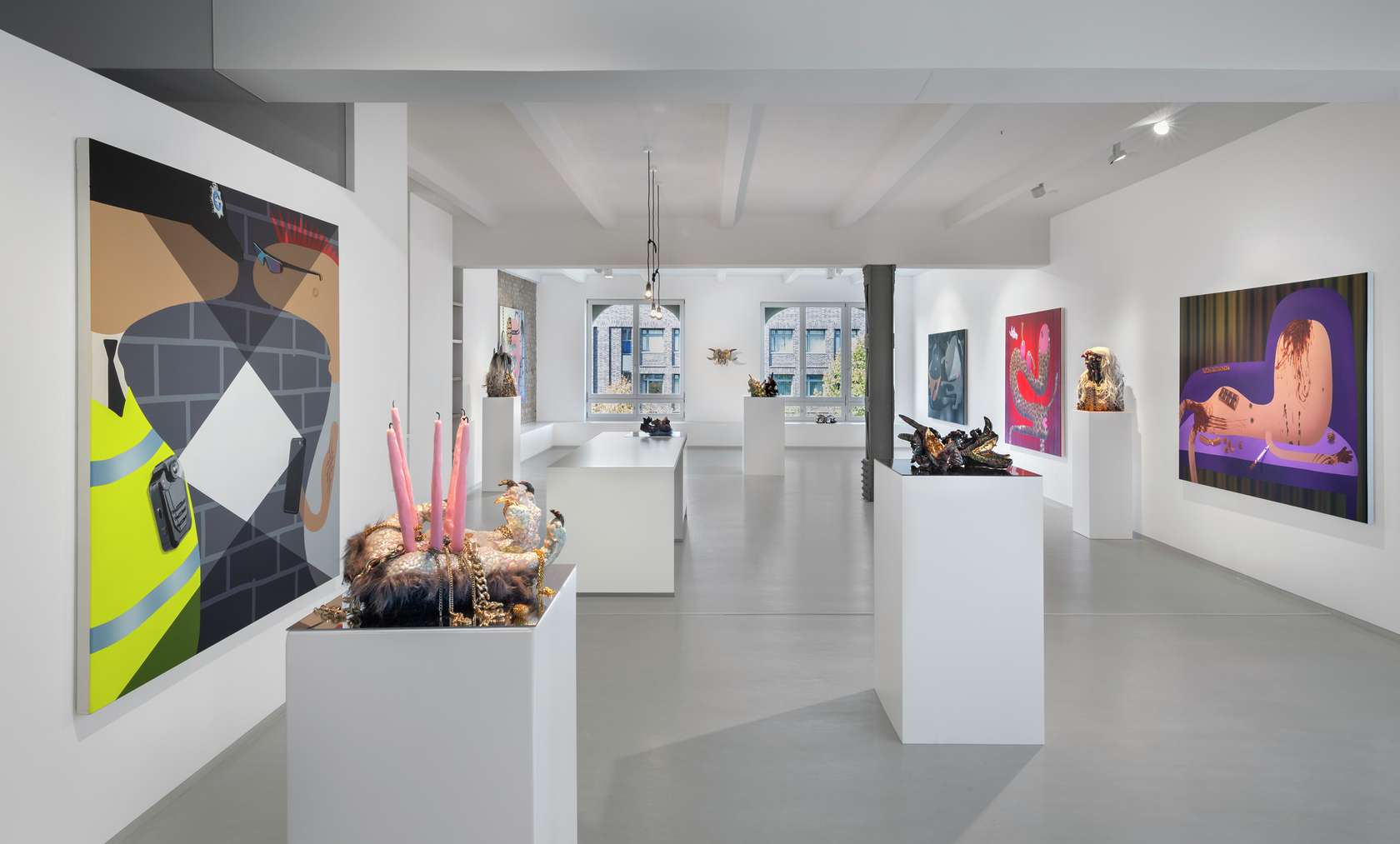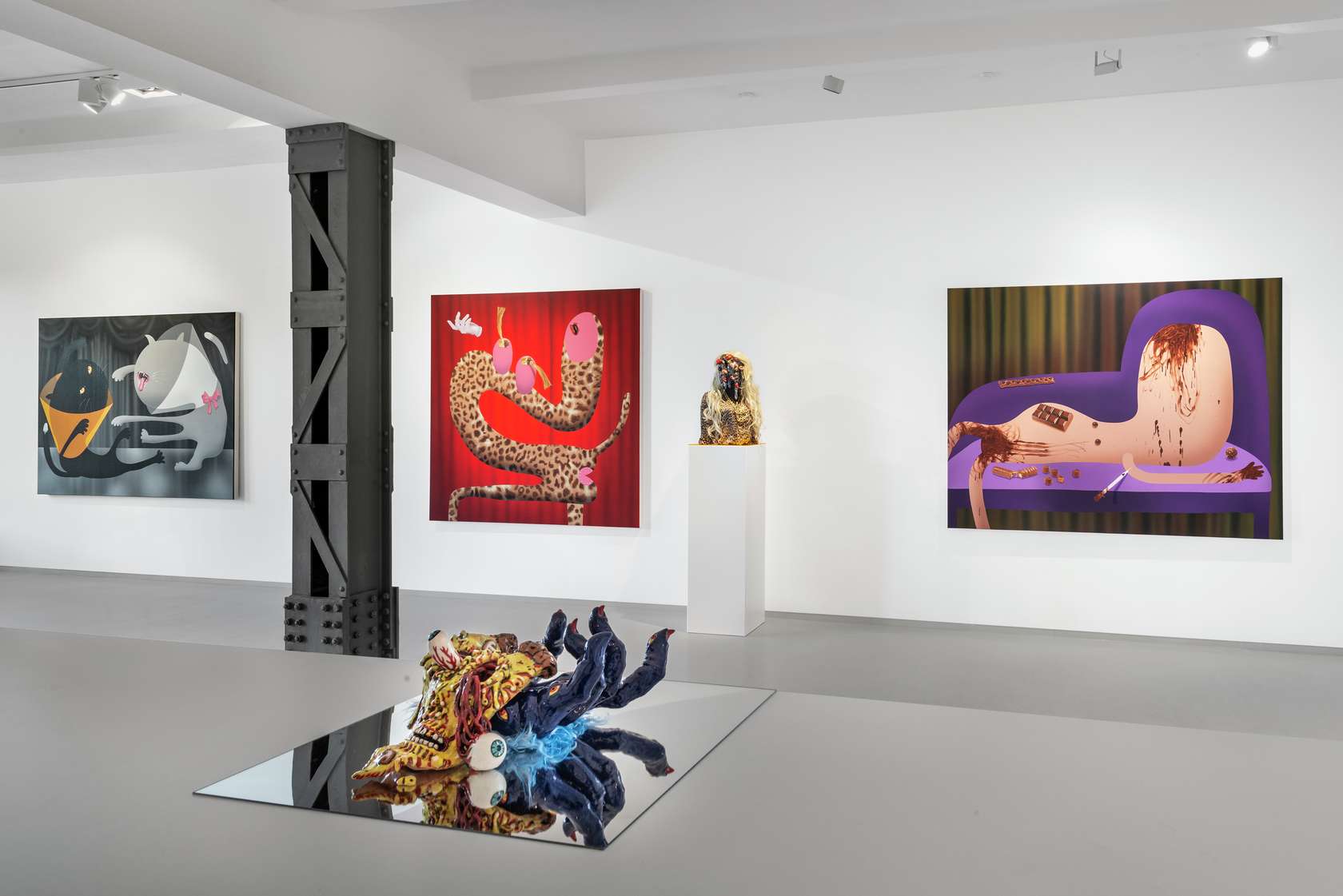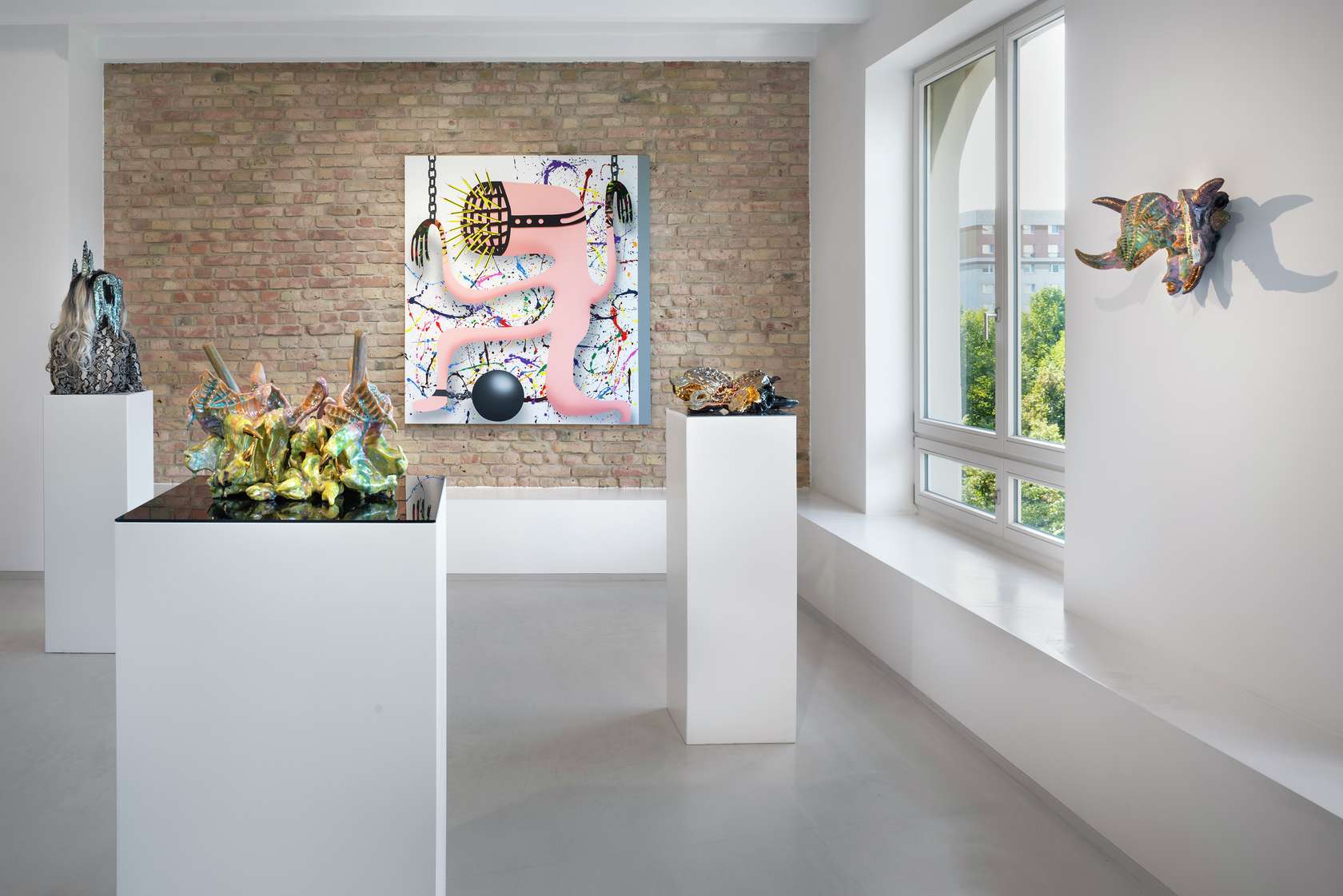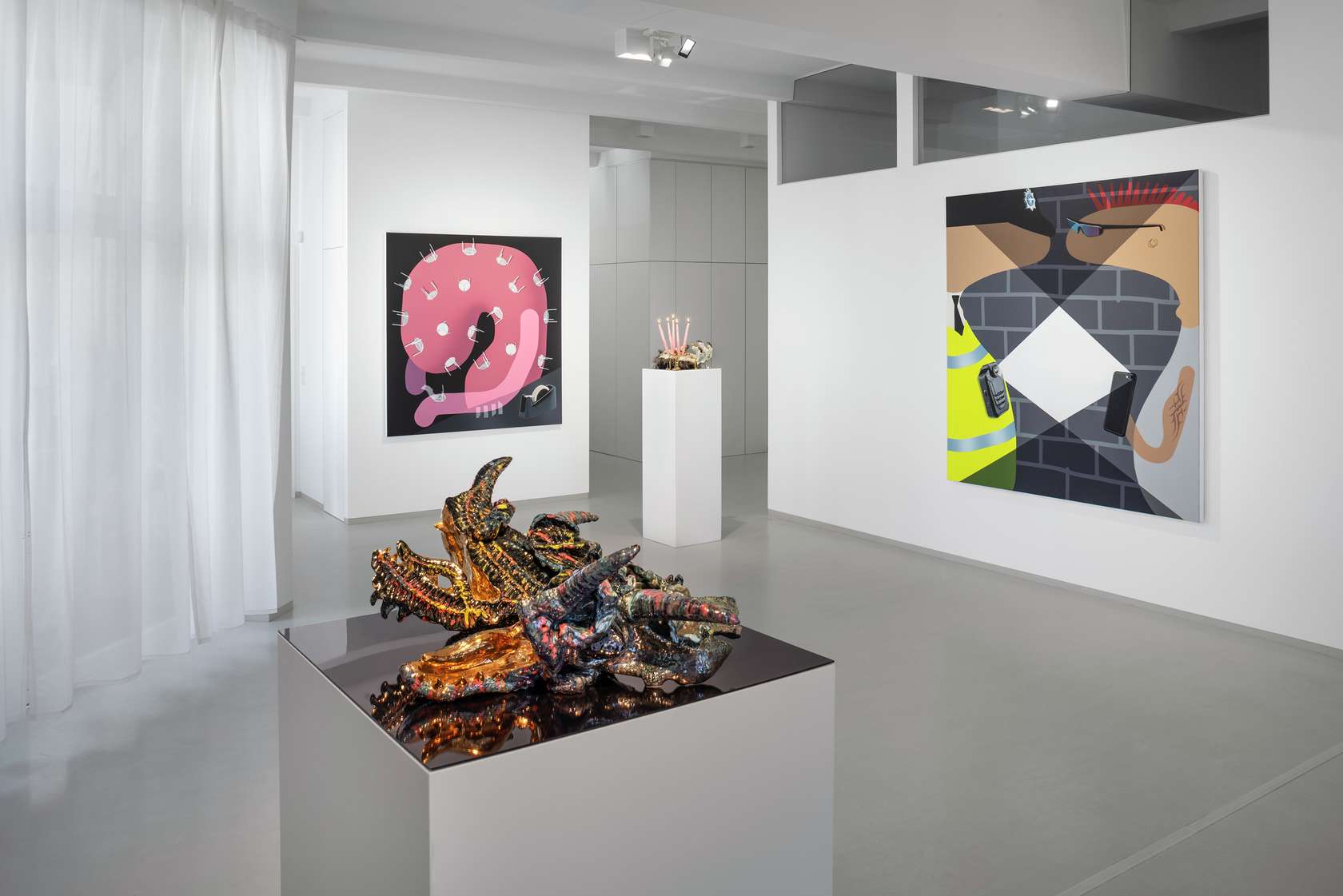-
 1/4
1/4
Oli Epp, Karma - Roxanne Jackson & Oli Epp
-
 2/4
2/4
Oli Epp, Karma - Roxanne Jackson & Oli Epp
-
 3/4
3/4
Oli Epp, Karma - Roxanne Jackson & Oli Epp
-
 4/4
4/4
Oli Epp, Karma - Roxanne Jackson & Oli Epp
Roxanne Jackson is a ceramic artist and mixed-media sculptor living in Brooklyn, NY. Her macabre works are black-humored investigations of the links between transformation, myth, and pop-culture. . She is the recipient of residencies at the Bemis Center for Contemporary Arts (NE), Socrates Sculpture Park (NY), Wassaic Project (NY), Watershed Center for Ceramic Arts (ME), Shigaraki Ceramic Cultural Park (Japan), PLOP Resideny (UK), Ceramic Center of Berlin (Germany). Recent exhibitions include shows at The Hole (NY), Cob Gallery (London), Anonymous Gallery (Mexico City), Mathilde Hatzenberger Gallery (Brussels), Regina Rex (NY) and SPRING/BREAK art fair in New York, among others. Upcoming: The Mushroom Show, Sardine Gallery, Brooklyn, NY (October 5 - November 3).
Oli Epp (b. 1994) is a painter living in London. Recent exhibitions include Richard Heller Gallery (LA), Semiose Galerie (Paris), Carl Kostyál (Malmö Sessions), ‘Untitled’ Art Fair (Miami Beach), and Artissima Fair (Torino) and he has an upcoming solo show in December at Carl Kostyal Gallery in London.
Karma comes in two parts. Action and reaction. What you give dictates what you’ll receive. Two players. Two perspectives. Two sets of desires and needs, pushing and pulling, in a constant feedback loop. It presumes a balance of free will and fate.
But what if these acting forces run amok? And we lose control? Forces that prey on our deepest anxieties and terrorizing nightmares. Faceless forces. Unresolved ghosts. Hazy shadows of nostalgia, etched into our muscle memory. Melted. Encrusted. And bittersweet.
Painter Oli Epp and sculptor Roxanne Jackson have been working together in a karmic circuit, creating new works at PLOP, a studio residency in Central London founded by Epp. Through riffing on similar colors, forms, concepts, and subjects, their creative language and shared interests have become enmeshed and activated in each other’s works. The stage has been set for tragic-comic misfortunes to play out.
Epp’s paintings offer a series of vignettes, each with its own austere backdrop and a cast of faceless characters with exaggerated, rubbery limbs. These creatures, haunted by nameless anxieties, are defiant and curious, yet highly vulnerable to external influence like disease, addiction, surveillance, and bondage.
In parallel, Jackson’s ceramic sculptures of splayed animal heads, swollen hands, and humanoid creatures are presented on mirrored surfaces that reflect and fold in on themselves. Animal spirits, vampiric features, and gore are met with absurd compositions and camp gestures. Lurid nightmares come to life through fire and melted glaze. Visions so grotesque and absurd, they tip the balance from horror into humor.
By awakening the shackled ties of cause and aftermath, the works in Karma tap into one of the most frightful riddles of existential terror—that facing our darkest fears means facing ourselves.
Text by Arielle Bier